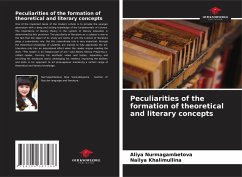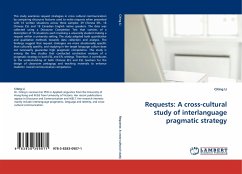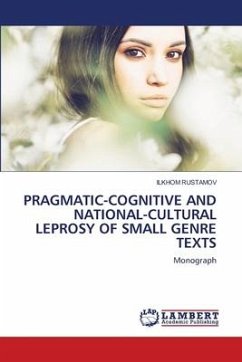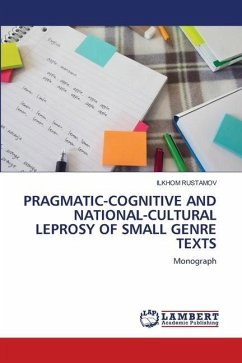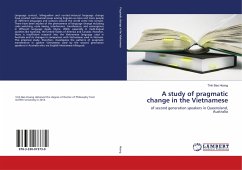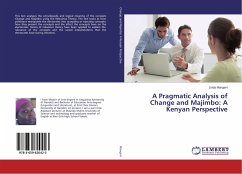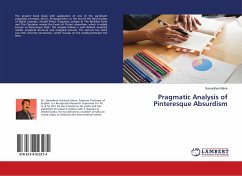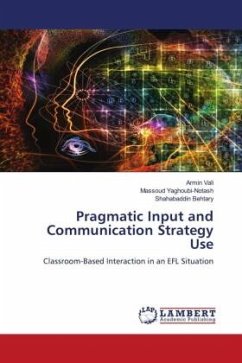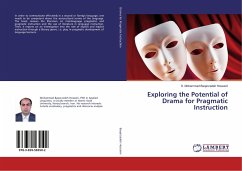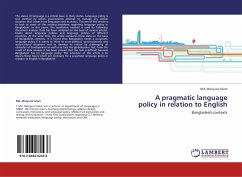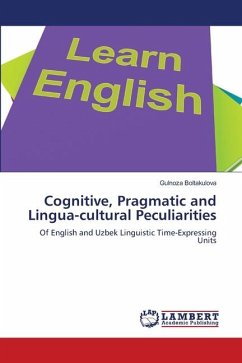
Cognitive, Pragmatic and Lingua-cultural Peculiarities
Of English and Uzbek Linguistic Time-Expressing Units
Versandkostenfrei!
Versandfertig in 6-10 Tagen
29,99 €
inkl. MwSt.

PAYBACK Punkte
15 °P sammeln!
The following monograph represents a linguistic investigation into the cognitive, pragmatic, and lingua-cultural peculiarities of linguistic units that express the nature of time in both English and Uzbek languages. It explores how speakers of these languages conceptualize and communicate temporal information, focusing on the similarities and differences of those elements between the two languages. The research findings provide valuable insights into how speakers of English and Uzbek conceptualize and communicate about time. They highlight the cognitive, pragmatic, and linguistic factors that ...
The following monograph represents a linguistic investigation into the cognitive, pragmatic, and lingua-cultural peculiarities of linguistic units that express the nature of time in both English and Uzbek languages. It explores how speakers of these languages conceptualize and communicate temporal information, focusing on the similarities and differences of those elements between the two languages. The research findings provide valuable insights into how speakers of English and Uzbek conceptualize and communicate about time. They highlight the cognitive, pragmatic, and linguistic factors that shape temporal expressions in these languages, shedding light on the underlying mechanisms and cultural influences that guide temporal communication. This book can be a useful guide for language teaching, cross-cultural communication, and the study of cognitive processes related to time perception. The current monograph consists of 3 parts, each one containing 2 various theoretical explanations of linguistic units expressing time.



